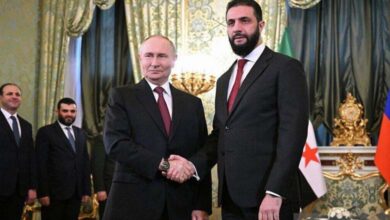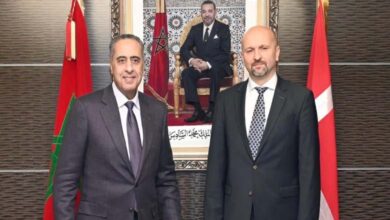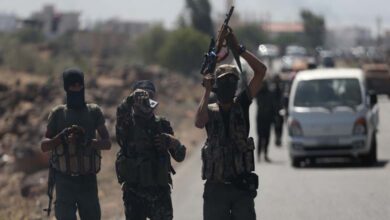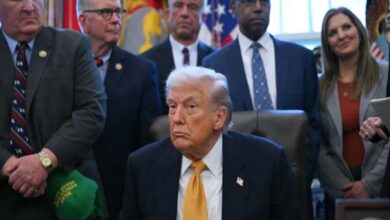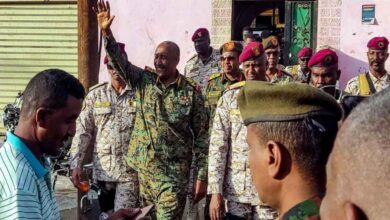Turkey intervenes in the Libyan banking sector
The Governor of the Central Bank of Libya discusses with the Turkish Ambassador the path to unifying the bank and the unified budget, which are internal issues concerning Libyans alone.
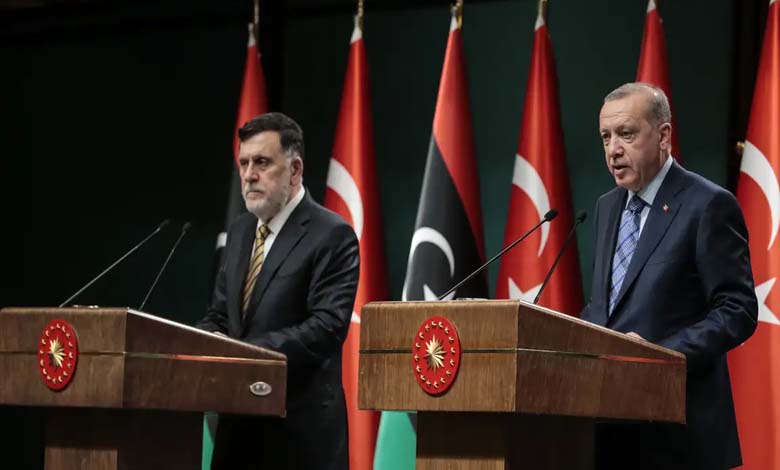
Turkey has been intervening in all aspects of Libyan life after the Government of National Unity led by Abdul Hamid Dbeibeh and some official institutions have widely opened the door to Turkish interventions, even reaching the financial sector. The UN mission warns of the repercussions of foreign interventions on the future of the country’s unification, while discussions about counterfeit and unofficial currencies that have negatively affected the value of the dinar and the confidence in the Libyan banking sector both domestically and internationally are escalating.
Central Bank of Libya Governor Sadiq al-Kabir met on Monday with Turkish Ambassador to Libya Kenan Yilmaz to discuss the process of unifying the bank and the unified budget, which are internal issues concerning Libyans alone.
The two sides discussed the bank’s efforts to maintain the state’s financial sustainability, according to a statement by the Central Bank of Libya on its social media page “Facebook.”
Before meeting the Turkish ambassador, al-Kabir discussed with the Italian Ambassador to Libya, Gianluca Alberini, aspects of cooperation in the banking sector, anti-money laundering and counter-terrorism financing, and associated risks.
The Turkish-Libyan discussions on the financial sector are taking place amid ongoing Turkish interventions to maintain Ankara’s ambitions, especially in the oil sector and other vital sectors. Turkish authorities signed a memorandum of understanding related to oil exploration during Dbeibah’s tenure, which sparked resentment and rejection from many countries in the region.
The Libyan financial and banking sector seems to be of great interest to the Turkish side, which seeks to seize Libyan resources and wealth after winning numerous reconstruction projects in the infrastructure field.
In addition to military interventions and attempts to expand influence by arming militias linked to the Government of National Unity or extending the army’s missions, Ankara has influence in many Libyan official institutions through figures known for their dubious relations with Ankara since the previous Government of National Accord.
The financial sector in Libya raises many questions following controversial reports of unofficial banknote exchanges for real dollars, contributing to the depreciation of the dinar. Sources indicated that some of these banknotes were printed by Russia and exported to eastern Libya this year, while others were illegally printed domestically.
The general budget has also sparked wide debate, causing disputes between the House of Representatives and the High Council of State. The president of the High Council of State, Mohamed Takala, criticized in a letter to Parliament Speaker Aguila Saleh the approval of a general budget amount described as unprecedented, reaching 179 billion dinars.
Libya split in 2014, with warring factions controlling the east and west. Despite the announcement of a ceasefire in 2020 and efforts to officially reunify state institutions, a political solution remains elusive, with the specter of new waves of conflict looming on the horizon.
-
Benghazi clashes… Accusations point towards Dbeibeh’s involvement in escalating the situation… Details
-
Dbeibeh Promotes Security Victories with Arrest of ISIS Leader
Last August, the Central Bank of Libya announced the reunification of its branches in western and eastern Libya, after nearly a decade of division. But this decision faced many pending issues, including the issue of unofficial banknotes printed by Russia or entities in eastern Libya.




